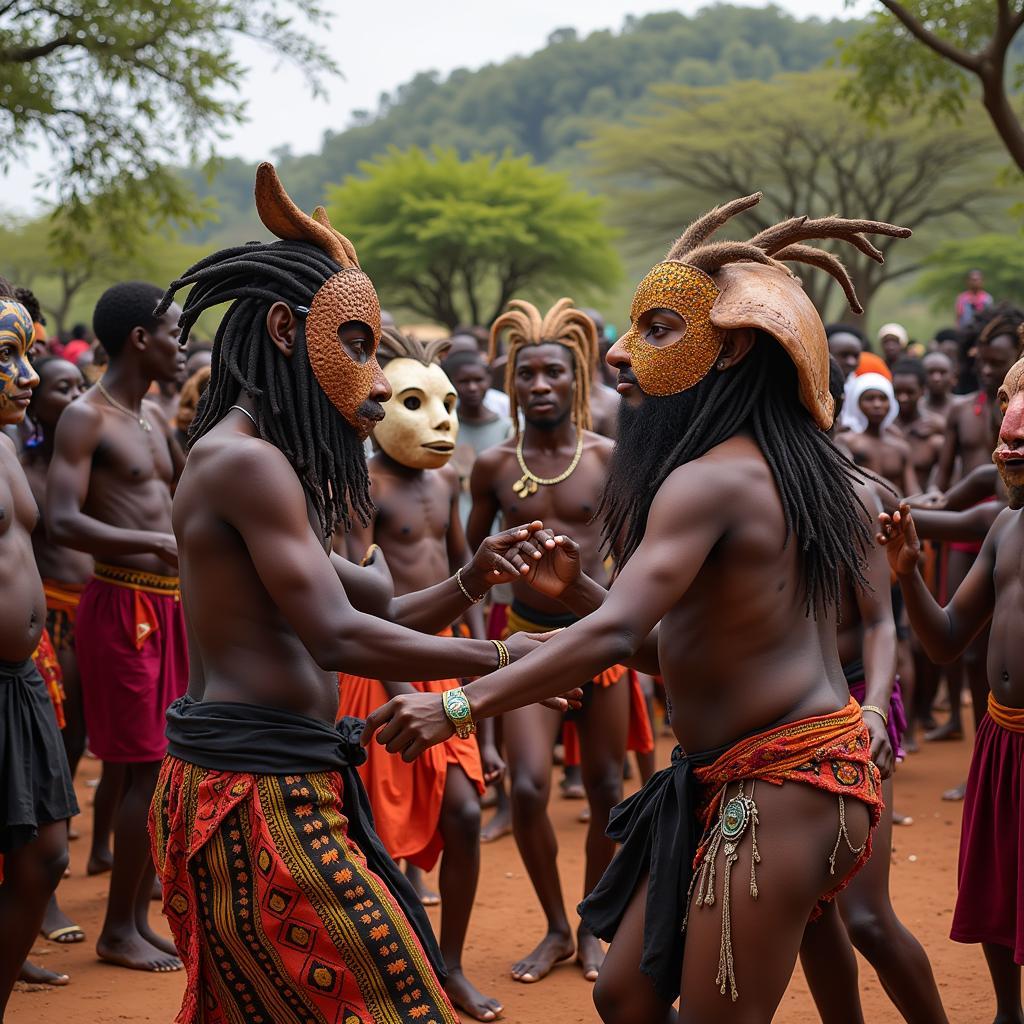The Dark History of African Chattel Slavery: A Legacy of Exploitation and Resistance
The transatlantic slave trade, a brutal and inhumane system that forcibly transported millions of Africans to the Americas, stands as a stark reminder of the darkest chapter in human history. This system, known as African Chattel Slavery, was rooted in the belief that Africans were subhuman and could be bought, sold, and treated as property. This abhorrent practice left an indelible mark on the African continent and its diaspora, shaping the social, cultural, and economic landscapes of both regions for centuries to come.
Origins and Evolution of African Chattel Slavery
The origins of African chattel slavery can be traced back to the 15th century, when European powers, fueled by a desire for cheap labor and the insatiable demand for cash crops like sugar, tobacco, and cotton, began establishing transatlantic trade routes. While slavery existed in Africa prior to European involvement, the scale and brutality of the transatlantic slave trade were unprecedented.
The Portuguese were the first Europeans to engage in the transatlantic slave trade, initially targeting the West African coast. Over time, other European powers, including the Dutch, British, French, and Spanish, joined the trade, expanding its reach to encompass the entire African continent. This led to a rapid increase in the demand for enslaved Africans, driving an intricate network of trade routes that connected European powers, African kingdoms, and the Americas.
The Role of African Kingdoms in the Transatlantic Slave Trade
It’s important to note that African kingdoms were not passive participants in the transatlantic slave trade. Some kingdoms actively participated in the trade, often collaborating with European powers to capture and sell enslaved Africans. However, this collaboration was often motivated by a complex mix of factors, including the desire for European goods, the need to protect themselves from rival kingdoms, and the belief that they were engaging in a legitimate form of trade.
However, it’s crucial to remember that the transatlantic slave trade was ultimately driven by European demand for enslaved labor. African kingdoms, while complicit in the trade, were ultimately pawns in a larger game orchestrated by European powers.
The Dehumanization of Africans
A central tenet of chattel slavery was the dehumanization of Africans. European slave traders and plantation owners actively propagated racist ideologies that portrayed Africans as inherently inferior, incapable of self-governance, and fit for nothing more than forced labor. These beliefs were used to justify the brutal conditions of slavery, including the separation of families, the denial of basic human rights, and the systematic suppression of African culture and identity.
“Africans were seen as commodities, not human beings,” explains Dr. Amina Muhammad, a renowned historian specializing in the transatlantic slave trade. “Their lives were reduced to a matter of profit and loss, and their suffering was largely ignored.”
The Impact of African Chattel Slavery
The consequences of African chattel slavery were devastating. Millions of Africans were forcibly uprooted from their homes, families were torn apart, and entire communities were decimated. The transatlantic slave trade had a profound impact on the demographics and economies of both Africa and the Americas.
In Africa, the slave trade led to widespread depopulation, the disruption of traditional social structures, and the rise of internal conflicts. The trade also had a long-lasting impact on the continent’s economic development, hindering its ability to thrive and prosper.
In the Americas, enslaved Africans played a vital role in the development of plantation economies, which produced the raw materials that fueled the Industrial Revolution in Europe. Their forced labor enriched European powers and contributed to the rise of capitalism. However, the legacy of slavery continues to haunt the Americas, manifesting in systemic racism, economic inequality, and social injustice.
Resistance and Resilience
Despite the horrors of slavery, Africans resisted their oppression in a variety of ways. Some staged open revolts, while others engaged in acts of passive resistance, such as sabotaging crops, slowing down their work, and preserving their cultural traditions.
“Resistance was not always overt,” notes Dr. Jamal Abu-Bakr, a historian specializing in African resistance movements. “Slaves found ways to maintain their cultural identities, preserve their traditions, and resist their enslavement through subtle acts of defiance.”
The resilience and resourcefulness of enslaved Africans allowed them to survive and adapt to the brutal realities of slavery. Their creativity and strength are evident in the rich cultural heritage they preserved and transmitted through generations.
The Ongoing Legacy of African Chattel Slavery
The transatlantic slave trade may have ended centuries ago, but its legacy continues to shape the world today. The systematic oppression and dehumanization of Africans during this era had a profound impact on the global racial hierarchy, contributing to the persistent problem of racism and inequality.
“The transatlantic slave trade was a crime against humanity,” asserts Dr. Muhammad. “Its legacy is still felt today in the form of social, economic, and political disparities between people of African descent and other populations.”
Moving Forward
It is crucial to acknowledge the horrors of African chattel slavery and its enduring impact on the world. We must learn from this dark chapter in human history and strive to create a more just and equitable society for all.
This means confronting the systemic racism that continues to perpetuate inequality, promoting cultural understanding, and working to ensure that the legacy of slavery is never forgotten.
chattel-slavery-africa-history|A photo of a slave ship transporting African slaves to the Americas|This image depicts a slave ship, overcrowded with enslaved Africans, being transported across the Atlantic Ocean. The cramped and unsanitary conditions of the ship were a testament to the inhumane treatment of Africans during the transatlantic slave trade.
It is our collective responsibility to ensure that the voices of those who suffered under this brutal system are heard and that the fight for equality and justice continues.
FAQ
1. What was the role of African kingdoms in the transatlantic slave trade?
While some African kingdoms were actively involved in the trade, it was ultimately driven by European demand for enslaved labor. African kingdoms were often motivated by a complex mix of factors, including the desire for European goods, the need to protect themselves from rival kingdoms, and the belief that they were engaging in a legitimate form of trade.
2. How did enslaved Africans resist their oppression?
Enslaved Africans resisted their oppression in a variety of ways, including staging open revolts, engaging in acts of passive resistance, and preserving their cultural traditions. Resistance often took subtle forms, such as sabotaging crops, slowing down their work, and maintaining a sense of community and identity.
3. What is the legacy of African chattel slavery?
The legacy of African chattel slavery is profound and multifaceted. It continues to shape the world today, manifesting in systemic racism, economic inequality, and social injustice. It is essential to acknowledge this legacy and work towards a more just and equitable society for all.
4. How can we move forward from the legacy of slavery?
Moving forward requires confronting systemic racism, promoting cultural understanding, and working to ensure that the legacy of slavery is never forgotten. This includes supporting initiatives that promote equality, justice, and reconciliation, as well as educating future generations about the horrors of slavery and its enduring impact.
5. Where can I learn more about African chattel slavery?
There are numerous resources available to learn more about African chattel slavery, including books, documentaries, museums, and online archives. You can also explore the websites of organizations dedicated to researching and combating the legacies of slavery, such as the Transatlantic Slave Trade Database and the International Coalition to End Slavery and Trafficking.

